Entire Polish city of 44,000 asked to evacuate as Storm Boris floods wreak havoc
Death toll from floods in Europe rose to at least 16 on Monday
Thousands of residents in a Polish city have been ordered to evacuate as floods triggered by Storm Boris continue to wreak havoc across central Europe.
The mayor of Nysa, Kordian Kolbiarz, issued the evacuation order on Monday, urging all 44,000 residents to seek higher ground due to the risk of a nearby embankment breaching.
The embankment holds back water from a large lake, and its failure could release a surge of water several metres high into the town.
“Please evacuate your belongings, yourselves, your loved ones. It is worth getting to the top floor of the building immediately, because the wave may be several metres high. This means that the whole town will be flooded,” Mr Kolbiarz wrote.
Storm Boris, which unleashed a month’s worth of rain in just 24 hours, has caused severe flooding in Poland, Austria, Romania, and the Czech Republic, with rivers overflowing and embankments threatening to break under the strain of the floodwaters.
The death toll from the floods rose to at least 16 on Monday, with four fatalities confirmed in Poland alone. People have also died in Romania, Austria, and the Czech Republic, where a firefighter was killed during a rescue operation.
In addition to the evacuations in Nysa, local authorities have ordered the evacuation of several nearby villages, including Kozielno, after the Topola reservoir in southern Poland overflowed.
The water from the reservoir has already inundated parts of the region, and officials fear further breaches could exacerbate the situation.
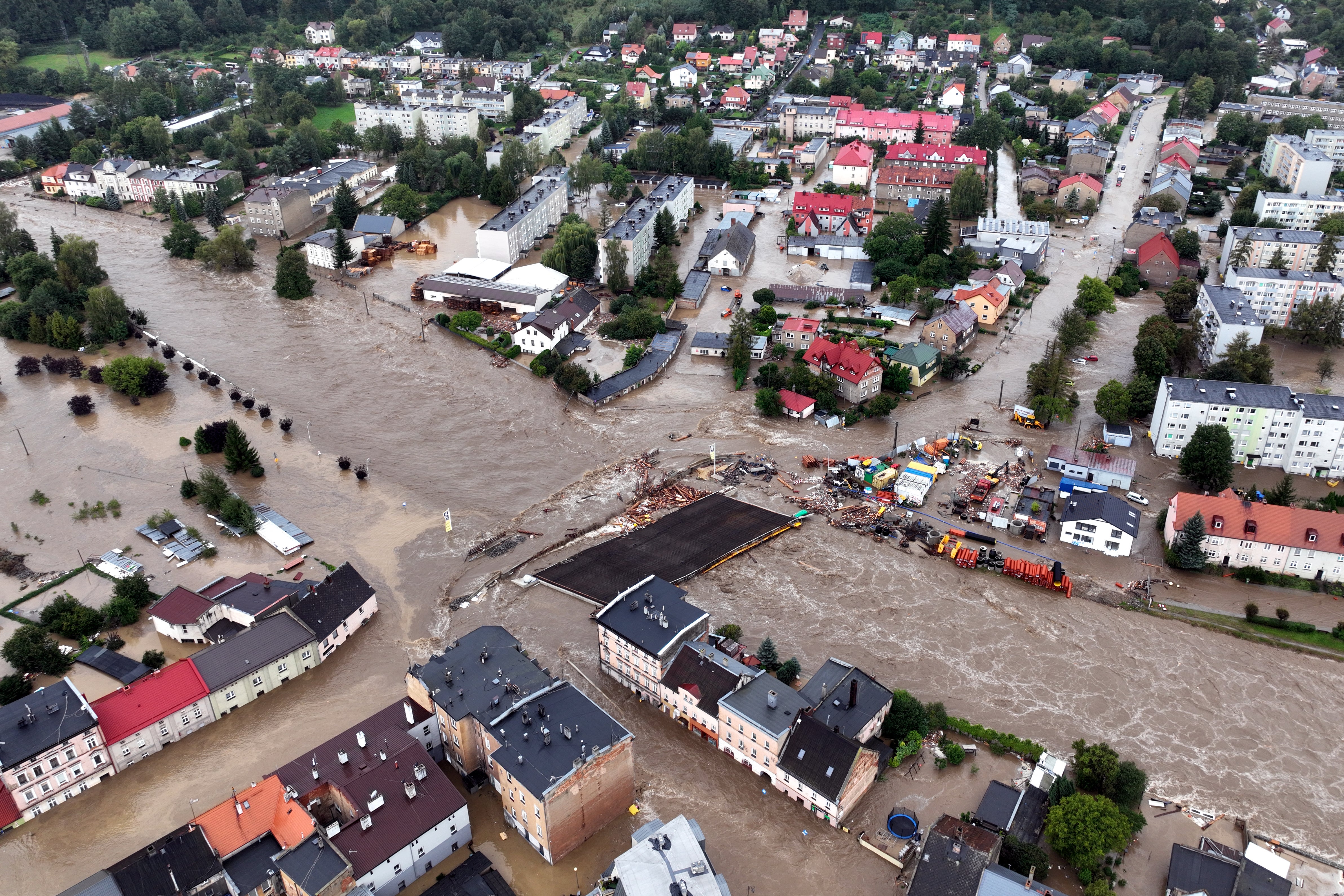
Prime minister Donald Tusk declared a 30-day state of natural disaster on Monday, which will allow authorities to streamline the response efforts and provide aid to flood-stricken areas in the Lower Silesian, Opole, and Silesian voivodeships.
“We are mobilising all available resources to assist the flood victims and to prevent further damage,” Mr Tusk said, announcing that one billion zloty (£197m) would be allocated to flood relief efforts.
He also confirmed that Poland would apply for EU relief funds to support recovery in the affected regions.
Nysa is not the only area at risk. In Wroclaw, a city of 600,000 people located in southwestern Poland, officials are preparing for peak water levels later this week.
Mayor Jacek Sutryk said that the city is on high alert, with teams working to reinforce flood defenses and protect critical infrastructure.
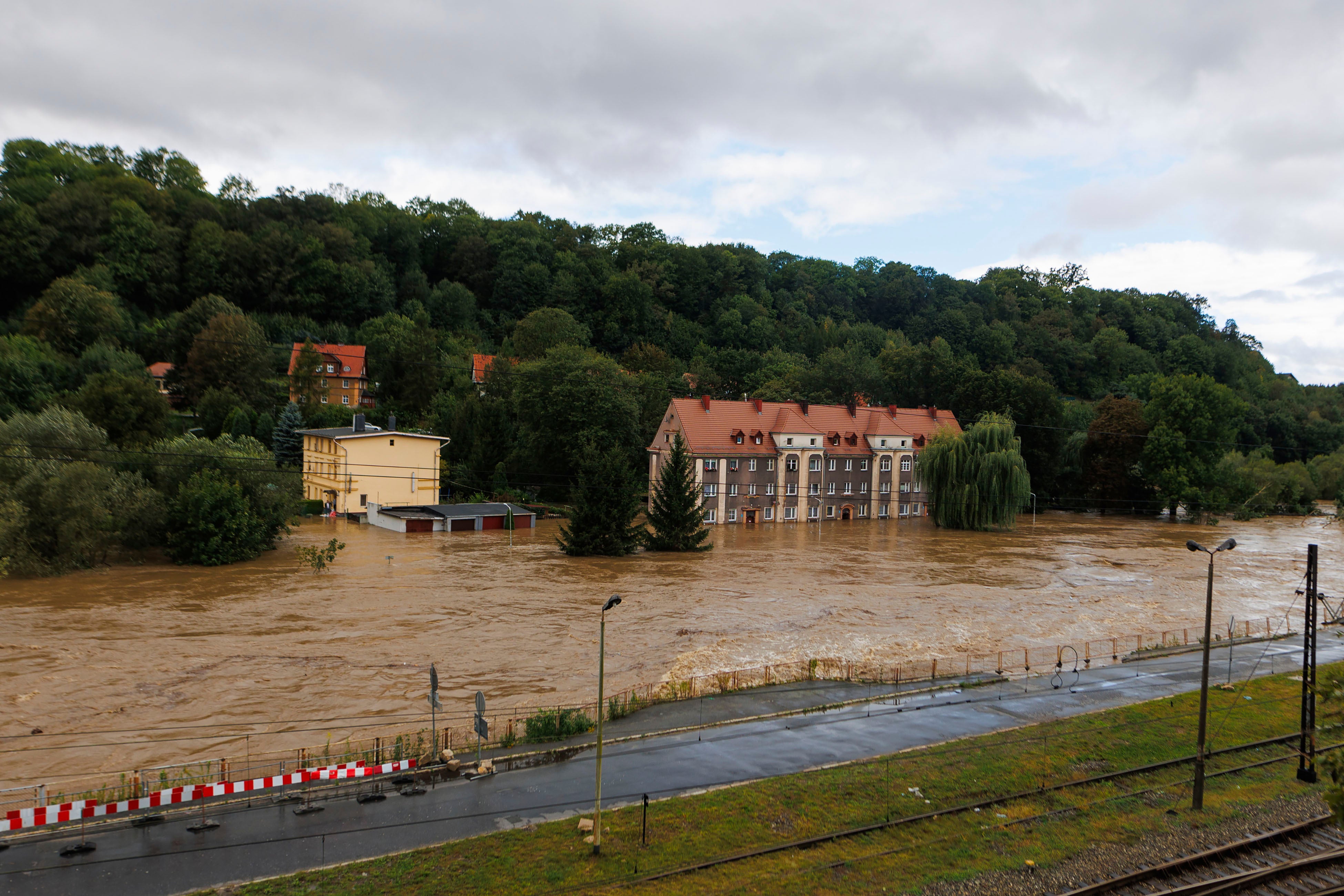
“We are preparing all available resources to mitigate the damage and ensure the safety of our residents,” Sutryk stated in a message to the city’s residents.
The floods have disrupted daily life across Poland. Roads have been heavily damaged, and train traffic has been suspended in many parts of the country, with rescue teams working around the clock to evacuate residents from the hardest-hit areas.
Other parts of Europe are also flooded. In Romania, villages and towns were submerged over the weekend, forcing thousands of residents to flee.
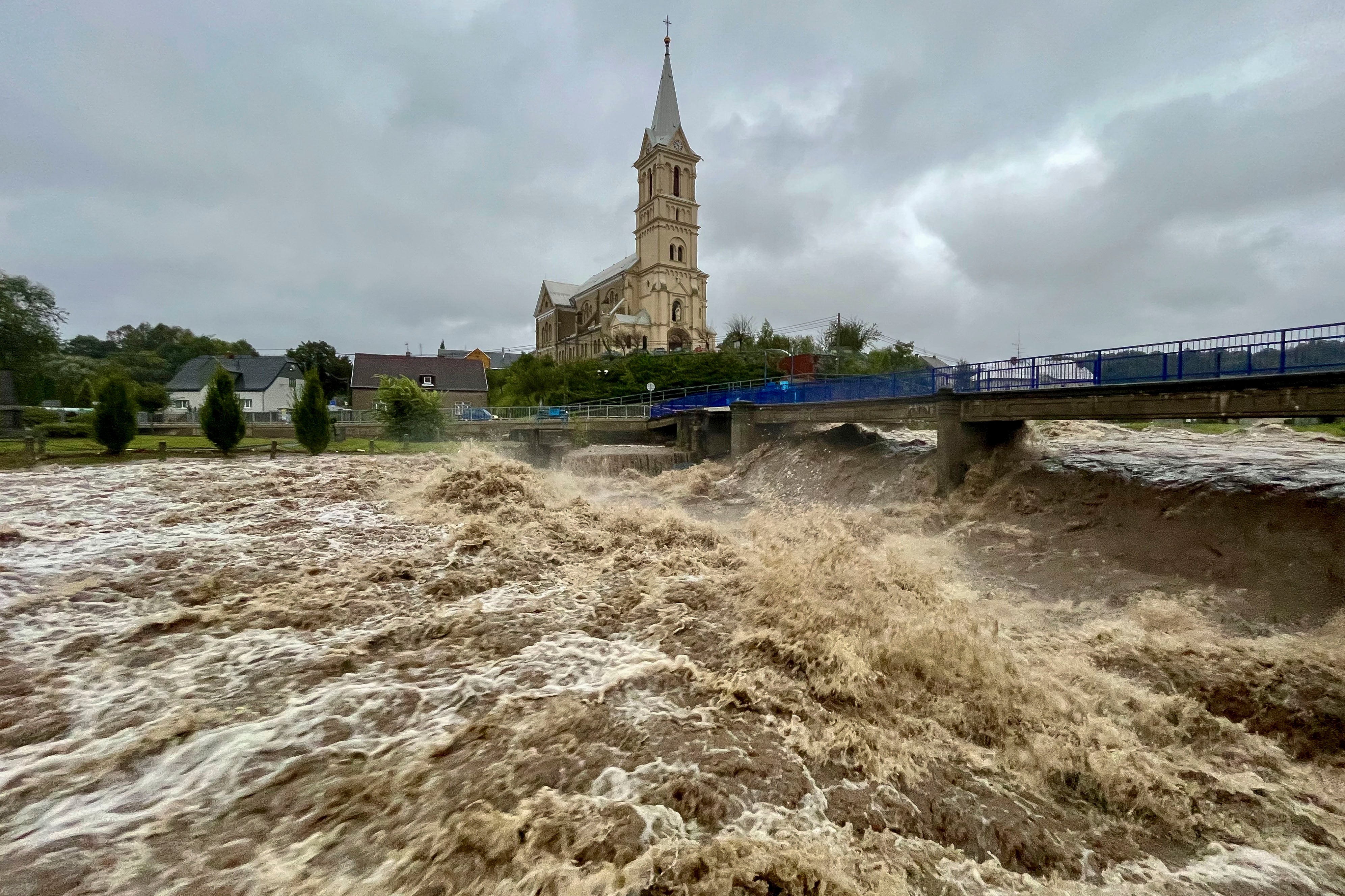
“If you were here, you would cry instantly because people are desperate ... there were people who were left with just the clothes they had on,” Emil Dragomir, the mayor of Slobozia Conachi in eastern Romania, said.
In Hungary, authorities are bracing for potential flooding along the Danube River, which runs through the capital, Budapest.
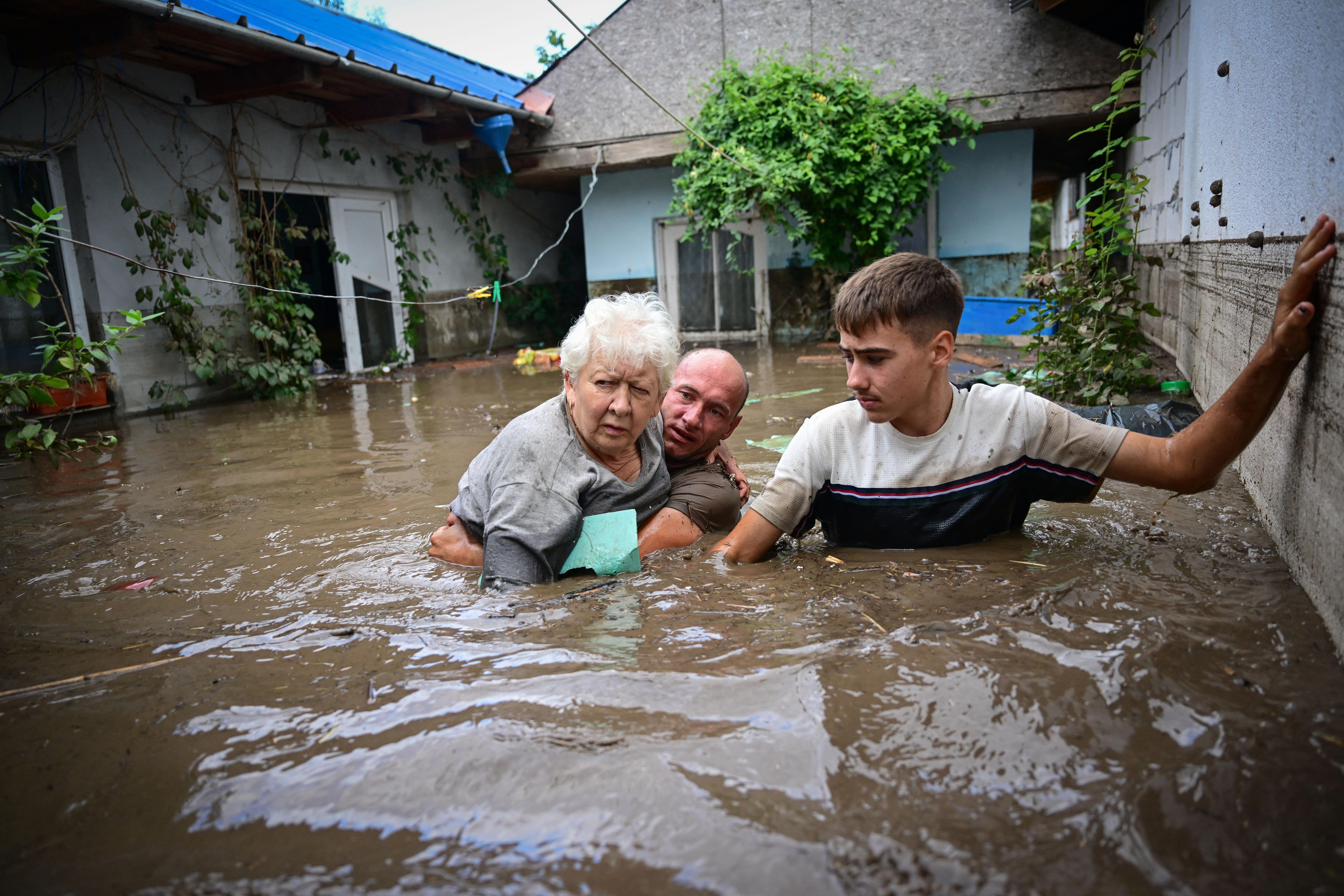
The river is rising by about a meter every 24 hours, and officials have issued flood warnings along a 500km (310-mile) stretch of the river.
Sandbags have been distributed to residents in flood-prone areas, and some roads in Budapest have already been closed in preparation for the rising water levels.
The storm has also affected Austria, where two elderly residents died in the northeastern region of the country over the weekend. Heavy rainfall has caused rivers and reservoirs to overflow, prompting evacuations and warnings of further flooding in the coming days.
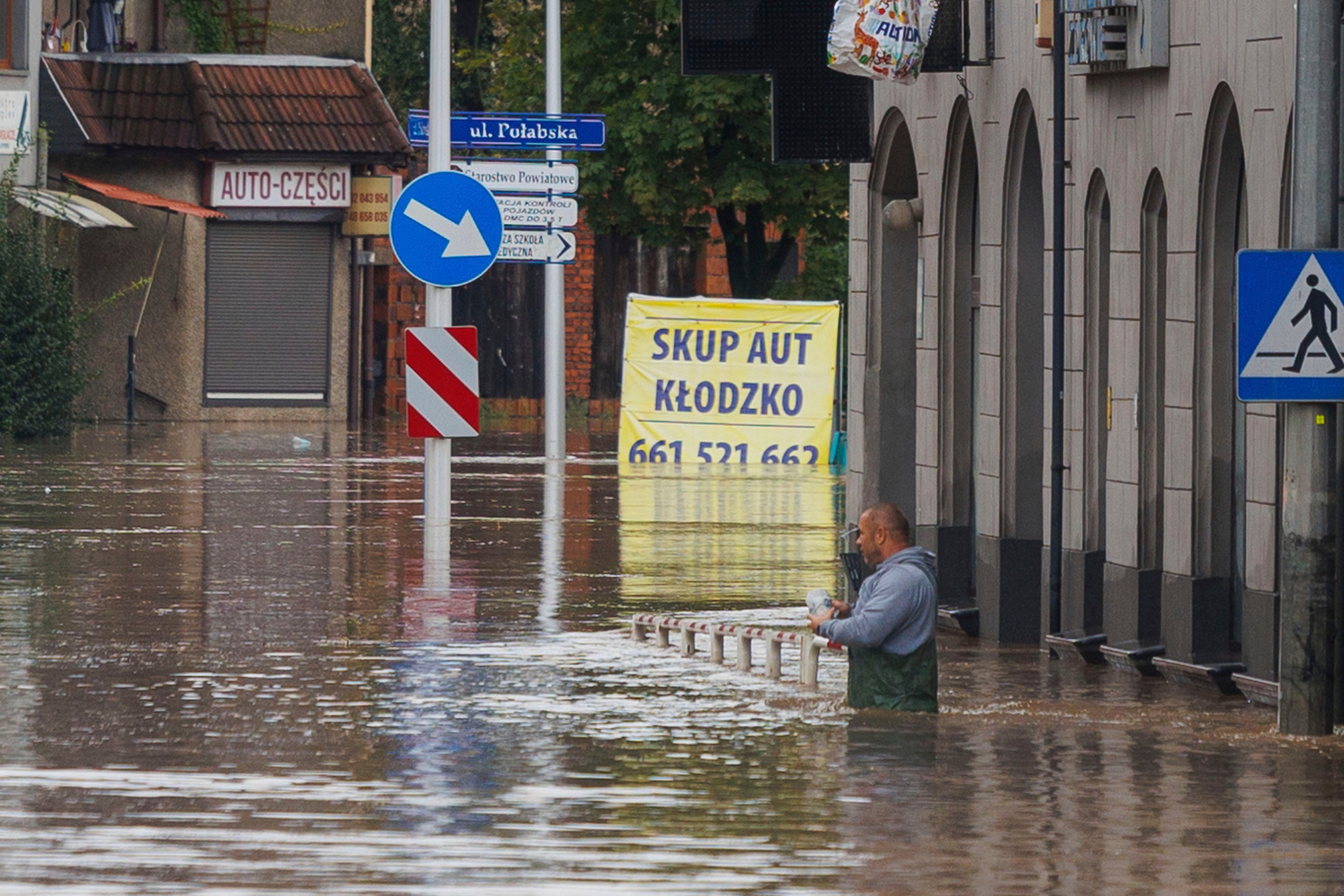
As the storm continues to move south, more rainfall is expected on Tuesday. But forecasters expected the weather to improve in central Europe from mid-week with much drier conditions prevailing. However, it may still take days for the flood waters to subside.
The Independent will be revealing its Climate100 List in September and hosting an event in New York, which can be attended online.
Join our commenting forum
Join thought-provoking conversations, follow other Independent readers and see their replies
Comments
Bookmark popover
Removed from bookmarks